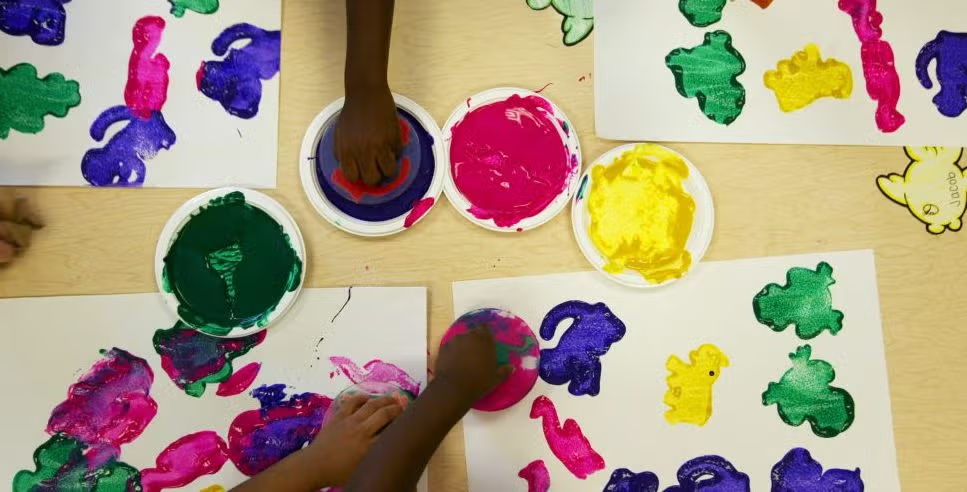5 Ways the Arts Help Kids Become Better Students
Multiple studies have proven that children who participate in the arts during their school-age years end up making huge strides than their counterparts who don’t. And yet, across the country,…

Arts programs have been shown to help kids perform better in school.
(Photo by Chris Hondros/Getty Images)
(Photo by Chris Hondros/Getty Images)Multiple studies have proven that children who participate in the arts during their school-age years end up making huge strides than their counterparts who don’t.
And yet, across the country, schools continue to lose funding for critical arts programs that help shape young talent.
Pacific Standard recently reported on a decade-long study of 30K Florida students, who proved that students who took elective arts classes in their middle school and junior high years benefitted greatly academically.
Here are 5 ways the arts can help kids improve academically.
Higher GPA:
The study, carried out by George Mason University and published in the Journal of Psychology of Aesthetics, Creativity and the Arts reported that "Those who experienced arts electives in middle school went on to earn significantly higher GPAs,” the researchers reported.
Higher Standardized Test Scores:
Surprisingly, the study, which followed 31,322 kids from different parts of Florida, also found that pursuing classes in the arts actually led to higher math and reading scores on standardized tests.
This was also noted to be true in a 2013 study out of Mississippi State University, which found that “effective classroom arts integration can reduce educational achievement gaps for economically disadvantaged students.”
Closing The Economic Gap:
Economic disparity – and the drastic differences in quality of education along class lines – is one of the biggest problems our schools face today. Yet, according to the MSU study, by incorporating the arts into the curriculum, students of all backgrounds seemed to achieve similar improvements.
"Schools that effectively implement arts integration have either significantly reduced or completely eliminated the educational achievement gap for economically disadvantaged students," she said. "This research indicates that arts integration can achieve that objective in Mississippi public schools."
Behavioral Improvements
Not surprisingly, the GMU study found that not only did kids improve academically when they participated in arts programs, but also behaviorally as well.
In fact, the students studied were found to be less likely to have serious behavioral issues than their peers.
The researchers found they “were less likely to get suspended from school, compared to students who were not exposed to arts classes," they wrote. "These are meaningful, important, and ecologically valid measures of actual student performance."
Emotional Intelligence:
According to a 2017 study in Arts Education Policy Review, kids who participated in the arts during their schooling also learned how to interact better with other children as well as additional “fundamental social skills.”
"Activities such as dramatic play or dancing in unison provide a venue for learning collaboration and cooperation,” the study found. Kids also picked up other key skills such as how to “persist in goal-oriented activity, to seek help when needed, and to participate in and benefit from relationships."
These skills were found to be important foundational blocks for adulthood, where skills beyond knowing how to read, write and multiply were critical markers of success.







